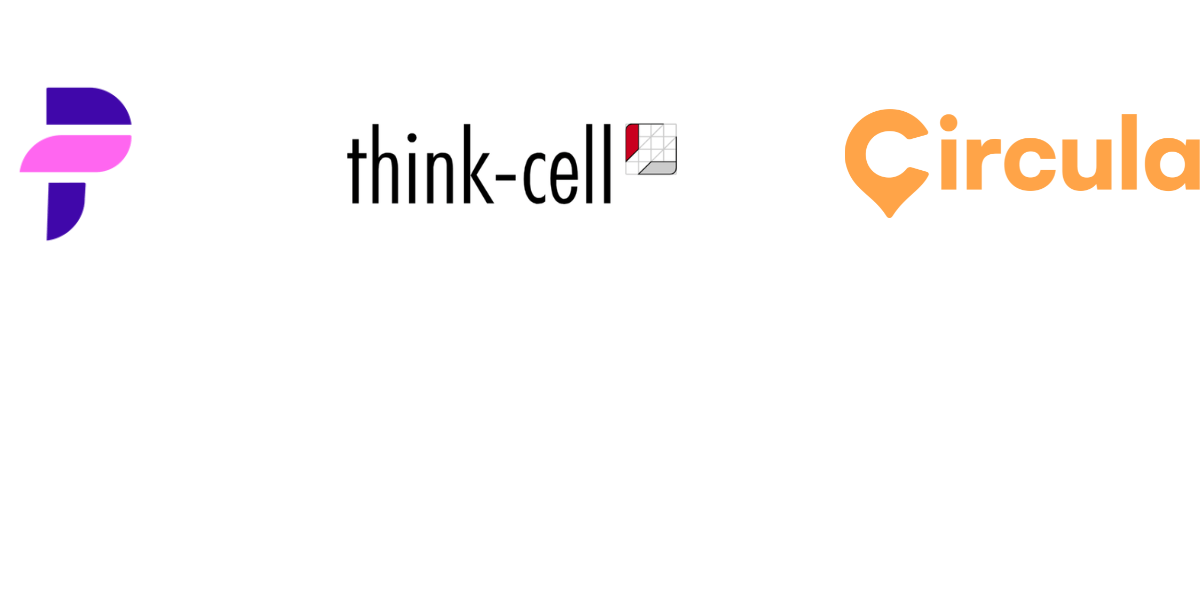- Emerging Markets Newsletter
- Posts
- Emerging Markets Newsletter
Emerging Markets Newsletter
2025 Edition #19
Semester 2 Week 7

Hey Legend!
Happy Monday and welcome to Week 7! 🥳
Thank goodness student union elections are over! 🎉No more being chased across campus by people with funny shirts and silly name tags 🤡. Your walk to class is now a safe zone again 🕊️.
Week 7 means the end is in sight 🫡, midsems are wrapping up and assignments are (allegedly) getting submitted. If you’re running on caffeine, chaos, and questionable time management, you’re not alone 🤝.
Push through, legends 🫡. The EMN crew believes in your ability to smash it, then recover with a nap that could legally be classified as hibernation 💤📚.
President’s Selection

A Message from think-cell

Create professional slides faster and more effectively with think-cell. Increase the ROI of every presentation by turning raw data into impactful charts, layouts, and visual stories in seconds. From there, we provide automation tools, 250+ templates, brand-consistent resources, and seamless collaboration features, supporting you until your slides look world-class.
Download think-cell suite today via this link with your unimelb email and copy the license key below for free installation.
EMN License Key: WG58A-3DNMS-6943U-Q626M-WTQAC
The Numbers

Markets showed a mixed performance over the past week, with equities generally edging higher while commodities diverged. Gold and Bitcoin posted solid gains, suggesting a tilt toward alternative assets, whereas crude oil continued to slide. Year-to-date trends remain broadly positive, especially for emerging markets and gold, highlighting investor appetite for growth and inflation hedges.
The Roundup
India faced currency and trade headwinds but pushed ahead with major corporate fundraising and tax reforms to spur growth. China balanced trade disputes with a stronger yuan and deeper Pakistan ties, while projecting military might at its Victory Parade. Africa advanced private investment, trade integration, and climate unity, even as elections stirred political shifts.
India

India’s economy is on the move, with market shocks, mega corporate fundraisers, and sweeping GST reforms shaping the week. Catch the top stories driving finance, energy, and consumer trends in one glance.
India’s rupee sank to a lifetime low of ₹88.36 per USD on Friday, driven by U.S. tariff concerns, heavy speculative trades, and sustained foreign outflows 🚨💸. The Reserve Bank of India intervened through state-run banks, selling dollars near ₹88.30 to contain the slide 🏦🛡. Still, with over $1.4 billion in equity outflows this month and no clarity on trade tensions, analysts warn the rupee may face further weakness ⚠️📉.
Mukesh Ambani–led Reliance Industries plans to raise about ₹180 billion ($2.06 billion) through an asset-backed securities deal backed by infrastructure and telecom loans, arranged by Barclays and maturing in three to five years 💼💰. The move supports Reliance’s broader growth strategy, including expansions in Jio, retail, and green energy, highlighting its push for innovative capital-raising 📈⚡.
India has emerged as the largest buyer of Russian seaborne crude, taking advantage of steep discounts 🚢💰, and Finance Minister Nirmala Sitharaman has confirmed that the country will “undoubtedly” continue these purchases as they are economically beneficial 💡. However, the Trump administration has responded with a 50% tariff on Indian goods, arguing that such oil imports help fund Moscow’s war in Ukraine⚖️🔥.
India’s GST Council approved tax cuts on 175 products, including shampoos, electronics, and hybrid cars, cutting rates by at least 10 percentage points to boost consumption 📉💰. Effective mid-September, personal care items drop from 18% to 5%, and electronics from 28% to 18% ⚡🛒. Auto makers like Toyota and Suzuki are expected to benefit from higher hybrid car sales this festive season 🚗🎉.
China

This week, we take a look at the ongoing trade dispute between China and the EU, increased economic and tech cooperation with Islamabad and a rallying Yuan. At home, China conducts its “Victory Parade” to global fanfare.
China has announced preliminary anti-dumping tariffs of 15.6% to 62.% on pork imports from the EU. China’s Ministry of Commerce 🏢 claimed its domestic industry had “suffered material injury” after concluding its anti-dumping investigation on the EU 🐷🔍. While the impact on Chinese consumers is expected to be minimal, the levies will deliver a significant blow 💥 to the profits of major European exporters 🚢🏭.
China’s Yuan rallied over the week to reach ¥7.136/USD, a gain attributed to support from the People’s Bank of China (PBoC) which pushed the Yuan’s USD 💹 reference rate from 7.1321 to 7.1030. Analysts have speculated the PBoC moved against market forces to better prepare for a potential USD weakening 💵📉, increase flexibility over future interest rate changes 📊, or to send friendly signals 🤝 to the US amidst trade negotiations.
China and Pakistan are set to deepen economic and tech cooperation following high-profile talks between Pakistani Prime Minister Sehbaz Sharif and Chinese Premier Li Qiang. Increased collaboration will focus on key areas like agriculture 🌾, AI 🤖, marine technology 🌊 and space exploration 🚀. Beijing also committed to further developing the China-Pakistan Economic Corridor (CPEC), a flagship BRI project 🛣️.
China marches with pride! In its latest Victory Parade🎖️, the People’s Liberation Army (PLA) flexed new state-of-the-art missiles 🚀, drones ✈️🎮 and laser weapons 🔫, delivering a a bold statement to the West: China is battle-ready. Most striking was the first-ever reveal of China’s nuclear triad ☢️, featuring the H-6N Strategic Bomber, JL-3 submarine-launched missile and DF-61 Intercontinental Ballistic Missile.
Africa

Africa kicks off September with big shifts: election build-ups 🗳️, new trade opportunities under AfCFTA 📦, and unity talks on climate at the AU’s summit 🌱. East Africa stays ahead with strong growth 📈, while Nigeria and Ghana face tough currency and inflation battles 💵🔥. Leaders are also chasing fresh investment 💼 as reliance on aid keeps shrinking 📉.
As foreign aid flows drop 📉, African economies are focusing on reforms and private investment 💼. East Africa continues to shine 🌾, while Nigeria and Ghana wrestle with unstable currencies 💵⚠️. North Africa looks steadier, boosted by exports and remittances 💸. Afreximbank’s solid results 📊 show how local banks are stepping up as key anchors for resilience.
Africa’s venture capital scene is heating up 🔥, with Oxford University hosting big-name VC fund managers this week 🎓💼. Morocco issued its first tokenized bonds 💻🔗, pulling in global investors for infrastructure projects 🏗️. Afreximbank also posted strong balance sheet growth 📊, proving crucial as capital outflows pressure local markets 🌍💰.
Election season is in full swing 🗳️. Malawi prepares for hotly contested polls on September 16 ⚡, with concerns over fairness and security. In South Africa 🇿🇦, the new Africa Mayibuye Movement led by Floyd Shivambu is shaking things up 🔄, signaling a generational shift in politics 👥. Meanwhile, the AU’s Africa Climate Summit in Addis Ababa 🌱 is pushing for a united climate stance ahead of global talks 🌍.
The Intra-African Trade Fair (IATF2025) opened in Algiers 🎉, drawing leaders, investors, and entrepreneurs from across the continent 🌍. With record business deals 💰, SME showcases 🛠️, and “made-in-Africa” supply chains spotlighted 🏷️, the fair is giving AfCFTA real momentum toward deeper integration 🤝.
See you all next week!
We hope you enjoyed reading our newsletter! There are plenty of facts for you to drop in your next conversation to sound more intelligent. Make sure to share this artistic marvel with a friend!
Good luck for your studies, we know you smart cookies will smash it.
If you have any inquiries please email [email protected]
We look forward to seeing you at our next event!
Best regards,
The EMN Team 💚
Our Amazing Partners
